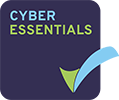WRAS approved products could be the next stage in a series of long standing developments towards a safer supply of potable water.
Historically, lead piping used to be the primary form of distributing potable water. This was due to its widespread use in industrial applications, as well as its natural occurrence in soils as a result of local geological conditions. As of the 1970s lead piping has been prohibited for distributing potable water and was considered the starting point for this journey towards a safer water supply.
It can now be seen that WRAS approval could well be the next necessary accreditation in the industry when dealing with human water consumption and food processes.
Stage 1: The elimination of lead piping
The health risks associated with lead relate to the way lead can build up in the body. Children and infants are at greater risk due to the damaging effects that lead can have on their mental development.
Human contact with lead should be kept to a minimum and subsequently the quantities of lead are controlled in air, soil, food and water. A full report on the internationally agreed health based knowledge about lead can be found on the World Health Organisation website.
For these reasons lead piping has not been used in the supplying of potable water for over 40 years and copper piping is now the industry standard material for all potable water distribution networks. This was the first stage in providing a safer supply of drinking water to the public.
Stage 2: The compulsory approval of plumbing contractors
Although lead piping has not been used to distribute potable water in over 4 decades, it is still possible that traces of lead can find their way into the supply. These cases are irregular and are often caused by the illegal use of lead based solder to connect sections of copper pipe. Lead solder is legally available for use on closed central heating systems, but, the problem occurs when unapproved plumbers or householders use lead based solder to connect potable water pipes, contrary to the law.
The introduction of legislation in 1999 now ensures that the installation, amending, connection and disconnection of all potable water fittings must be completed by an approved plumbing contractor. This further enhances the procedures that have been installed to ensure safe potable water is supplied to the public. It can now be considered that the water within the UK is amongst the safest in the world.
Stage 3: WRAS approval for products used in conjunction with the installation of potable water fittings
Although we consider the potable water in the UK to be of the highest standard, it would be foolish to become complacent. We currently have regulations that require the personnel who install potable water fittings to be approved by the legislative arm of the government, but, we do not currently have any regulation that enforces the use of approved products in the fitting and maintenance of potable water fittings.
These products may include greases for fitting various sections of piping, sealants for piping, connections and valves, lubricants for rubber seals and other such products.
It is possible to get WRAS approval for these types of products and there are industry professionals that currently use them as a way of promoting safer potable water supplies.
It would come as a natural progression that within this industry all products used that come into contact with valves, pipes or any opening whereby contaminants could enter the water supply have to be approved as safe to come into direct or incidental contact with the food chain to ensure the safest possible water supply to the public.
Stage 4: The large scale use of food grade products in potable water processing
There is a large emphasis on food safe products in modern food and beverage production. Examples include lubrication solutions such as chain sprays/greases, bearing lubricants and food release agents.
The significance for water quality here is that the water used in food production needs to be of a safe standard for human consumption. By starting with a non-toxic NSF registered product it is possible to fulfil this requirement and provide peace of mind to food production facilities.
It is true that water goes through a purification process before coming out of your tap to make it potable, but, by using non-toxic lubricants at the beginning of the process we can reduce the risk of contamination from the very first stage, again improving our ability to classify the drinking water in the UK as the safest around.
Leeds based ITW ROCOL has provided cost savings to water treatment facilities at AnglianWater using Food Grade Lubricants and WRAS Approved Sealants. A 4% energy reduction was achieved proving that the use of high quality, approved products can do more for water treatment facilities than improving safety alone.

